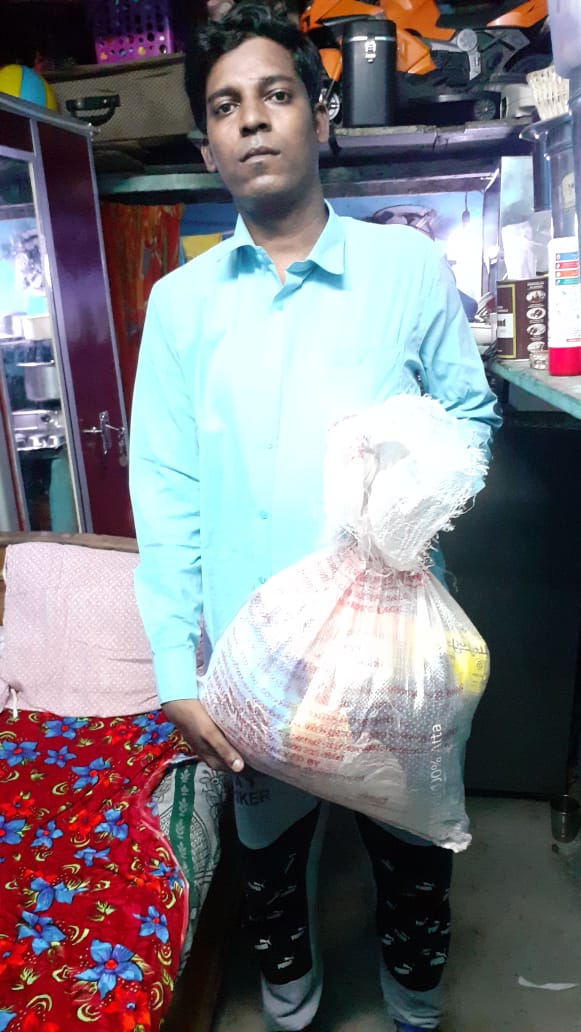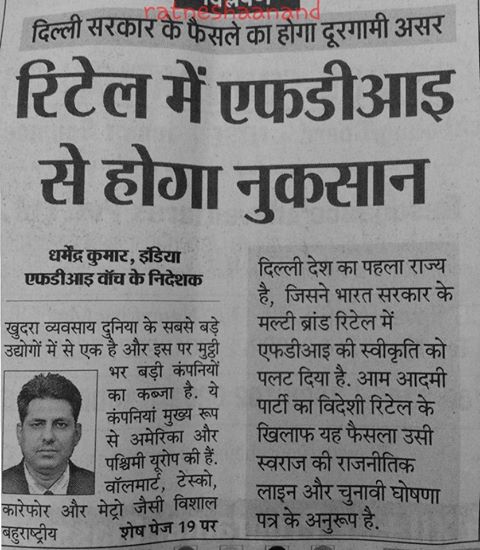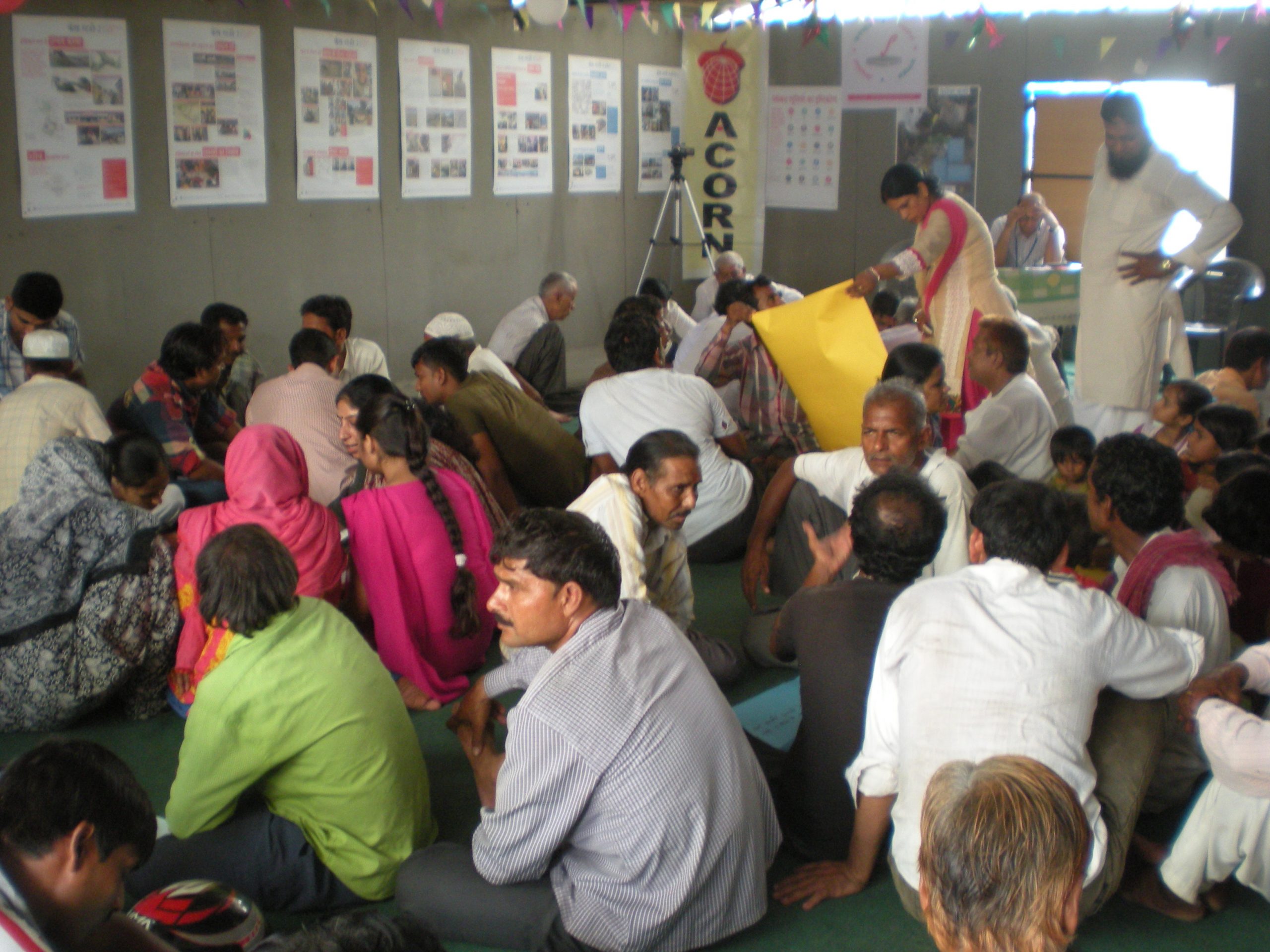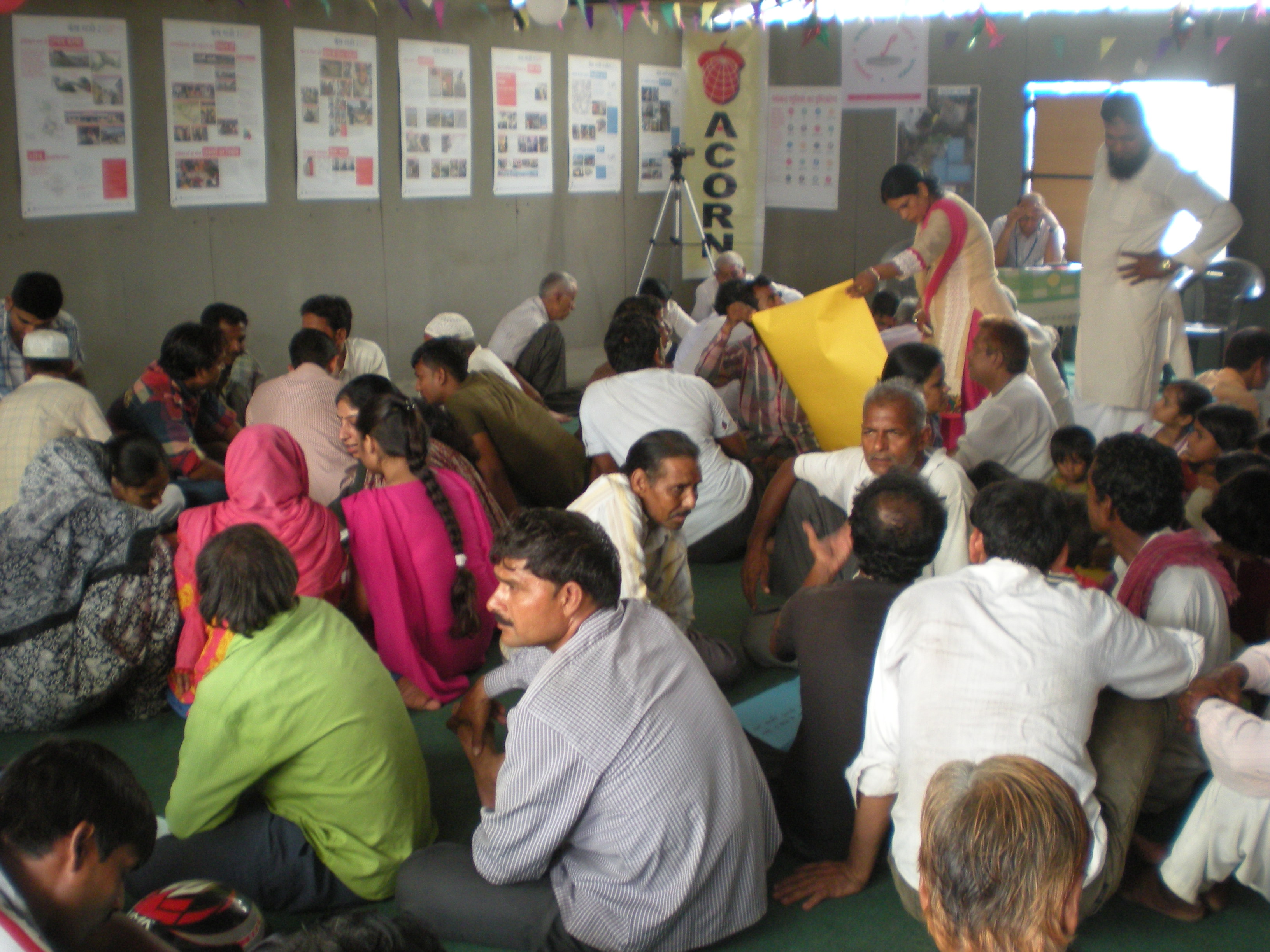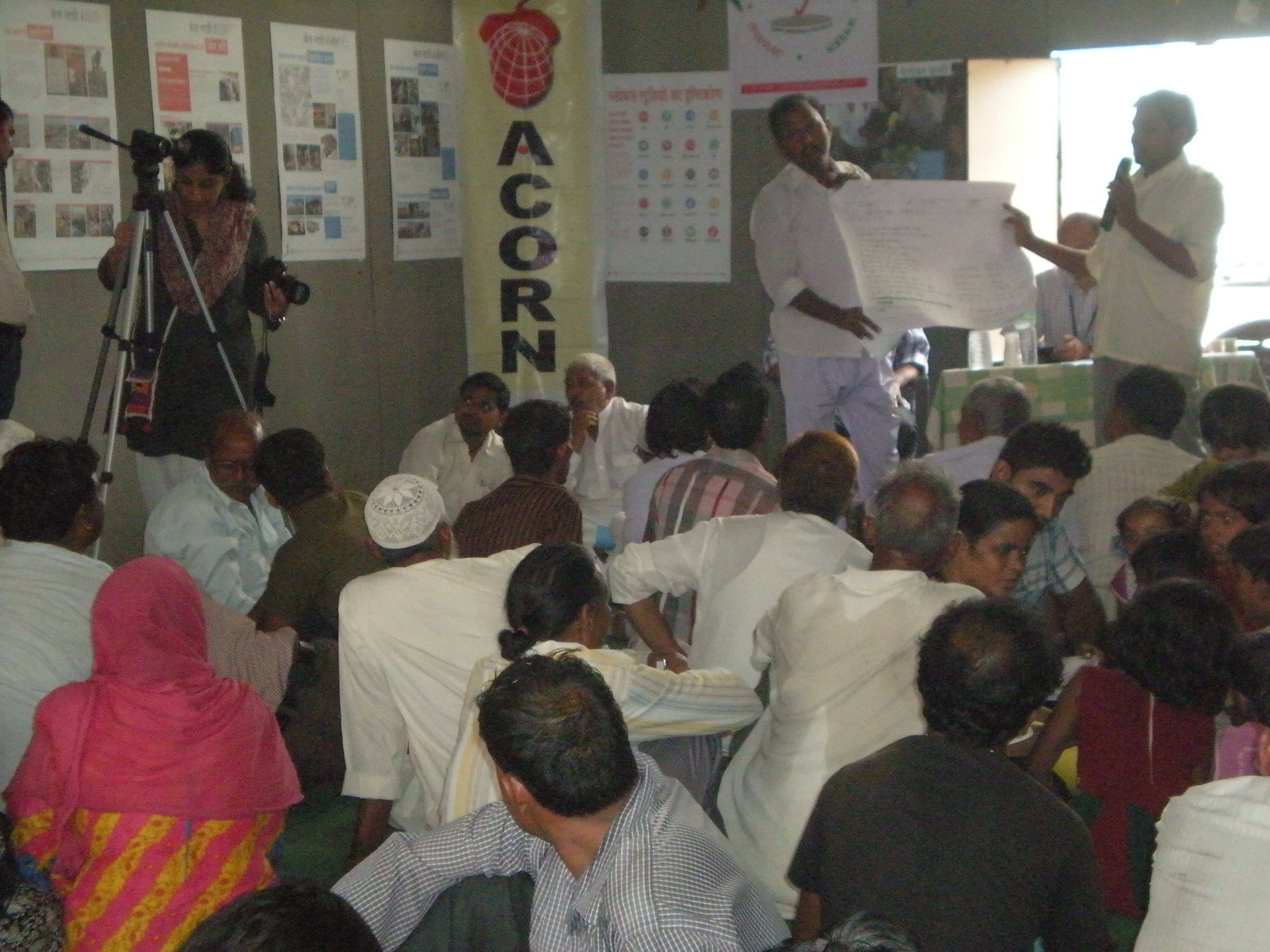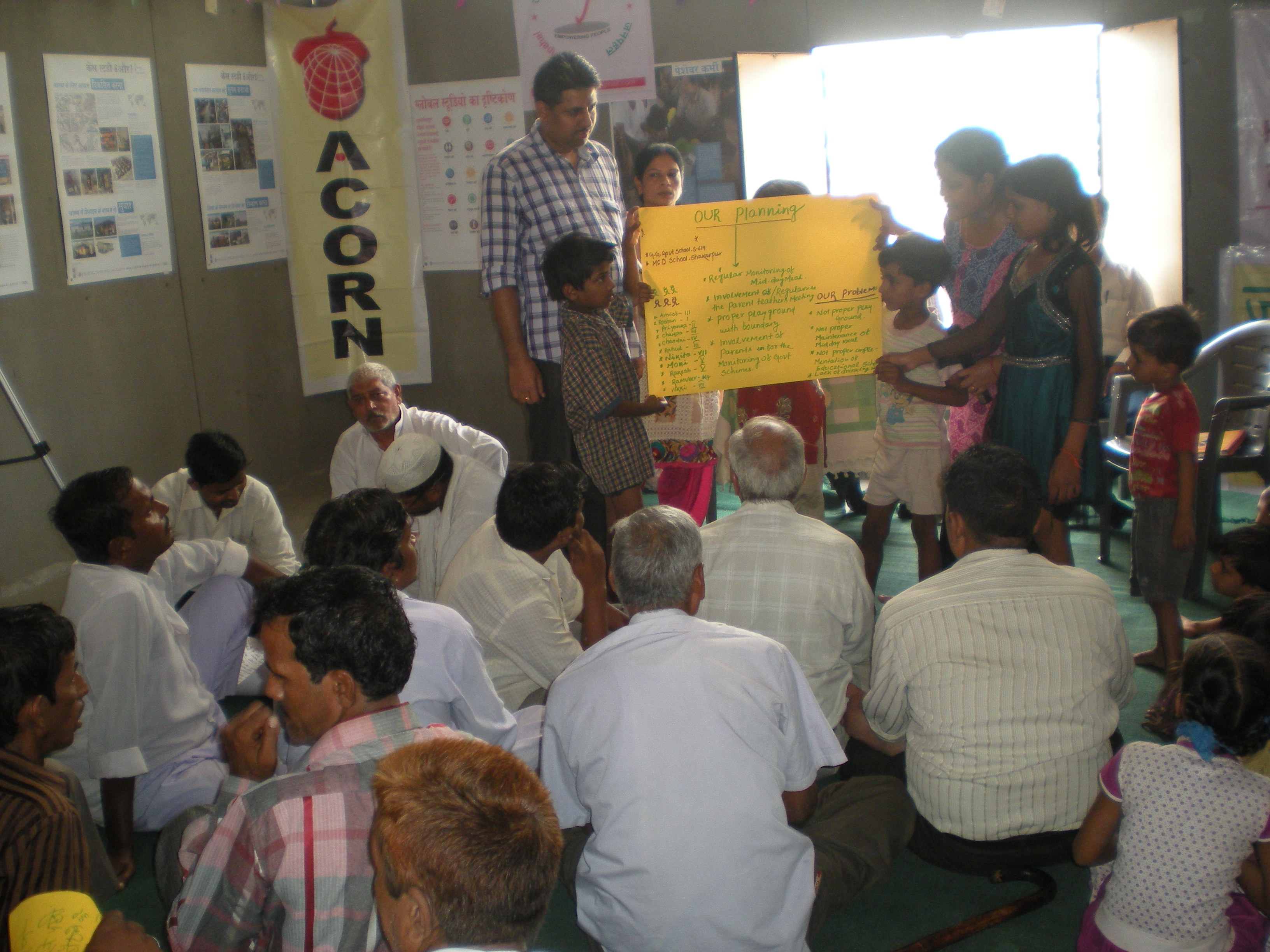Your cart is currently empty!
Category: ACORN India
ACORN India came into existence when in March 2005 the stage was set by the work ACORN International was doing in partnership with the FDI Watch campaign in India. ACORN India FDI Watch seeks to scrutinize and challenge Foreign Direct Investment in the retail sector in India. ACORN India seeks to prevent large multi-national companies like Wal-Mart from entering Indian markets unless they guarantee protection of communities they affect; ensure stability of the existing small businesses and ensure livelihoods of small traders; guarantee fair wages, just working conditions and a right to unionize to all their employees; and ensure that a significant portion of the supplies comes from the Indian markets. LEARN MORE>>>
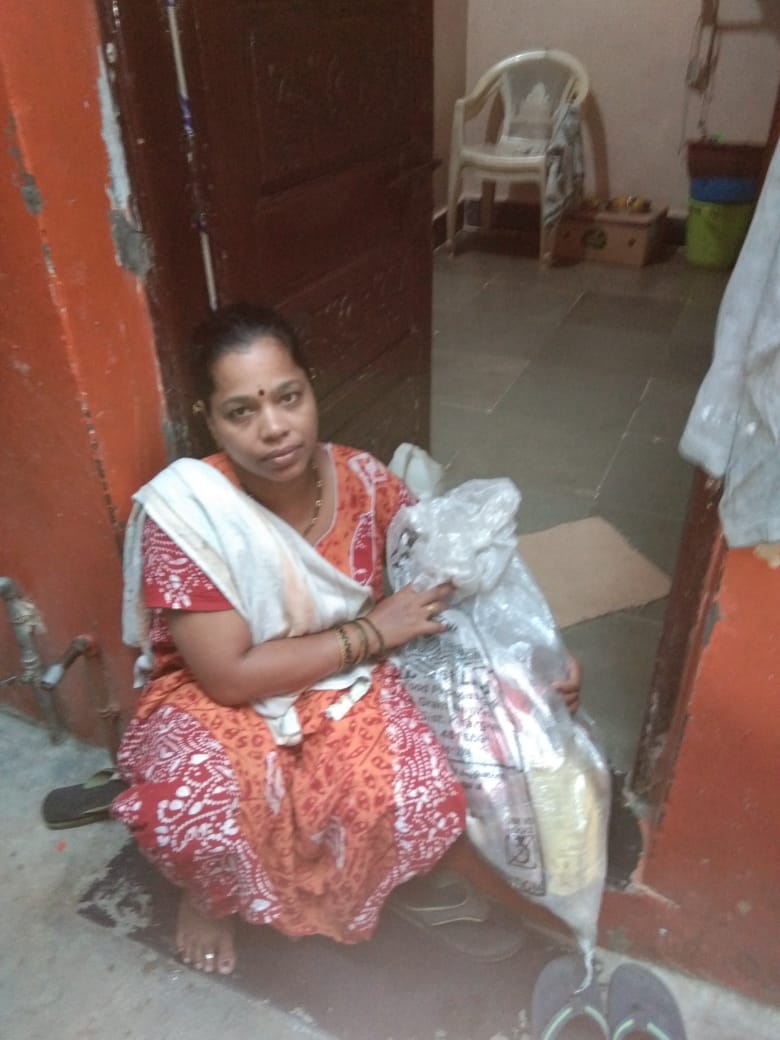
Hawkers Protest
Thousands of hawkers joined the protest and march organized on 5th February 2014 at the Parliament by Hawkers Joint Action Committee for passage of the Street Vendors Bill and reversal of the national policy to allow foreign superstores.
Rajasthan joins Delhi in banning FDI in retail
http://timesofindia.indiatimes.com/business/india-business/Rajasthan-joins-Delhi-in-banning-FDI-in-retail/articleshow/29676191.cms
Rajasthan joins Delhi in banning FDI in retail
TNN | Feb 1, 2014, 12.18AM IST
NEW DELHI/JAIPUR: There is more bad news for foreign supermarket chains looking to set up shop in India with Rajasthan joining Delhi in reversing its earlier decision to allow foreign direct investment (FDI) in multi-brand retail trading.Analysts said that the move will further impact investor sentiment as it does away with stability in policy. Foreign retailers have cited the lack of unanimity among political parties as one of the key reasons to adopt a wait and watch stance before committing to investing in the country.
So far, Tesco, which has tied up with Tata Group’s Trent, is the only company to have received government go-ahead for multi-brand retail even as others such as Walmart and Carrefour have preferred to wait on the sidelines. Tesco intends to start operations in Maharashtra and Karnataka.
The newly elected BJP government in Rajasthan has communicated its decision against allowing FDI in multi brand retail to the Union commerce and industry ministry, two government officials told ToI.
Principal secretary Veenu Gupta, managing director of RIICO and in charge of the state Bureau of Investment Promotion as commissioner, confirmed that the letter was sent to the ministry on January 25. BJP has been opposed to the policy with states ruled by it, including Gujarat and Madhya Pradesh, deciding against allowing FDI in multi-brand.
Hawkers Will March to parliament
Hawkers Joint Action Committee is organizing a sit in protest and march to Parliament on 5th February at Jantar Mantar, New Delhi demanding Indian Govt. reversal of FDI retail policy and the passage of the Street Vendors (Protection of Livelihood and Regulation of Street Vending) Bill, 2012 from the upper house of the parliament. The lower house has already passed the bill on 6th September, 2013. The bill provides for protection of livelihoods rights, social security of street vendors and regulation of urban street vending.
Victory in Delhi
Delhi became the first Indian state to reverse the policy of allowing FDI in multibrand retail. The newly formed Delhi govt. of Aam Admi Party (AAP) has written to the Department of Industrial Policy and Promotion (DIPP) asking it to remove Delhi from the list of states which have conveyed their agreement to the policy of FDI in multibrand retail.
France based Carrefour and Germany based Metro are already operating cash & carry wholesale stores in Delhi. Rajasthan, another major state of India is likely to follow the suit.
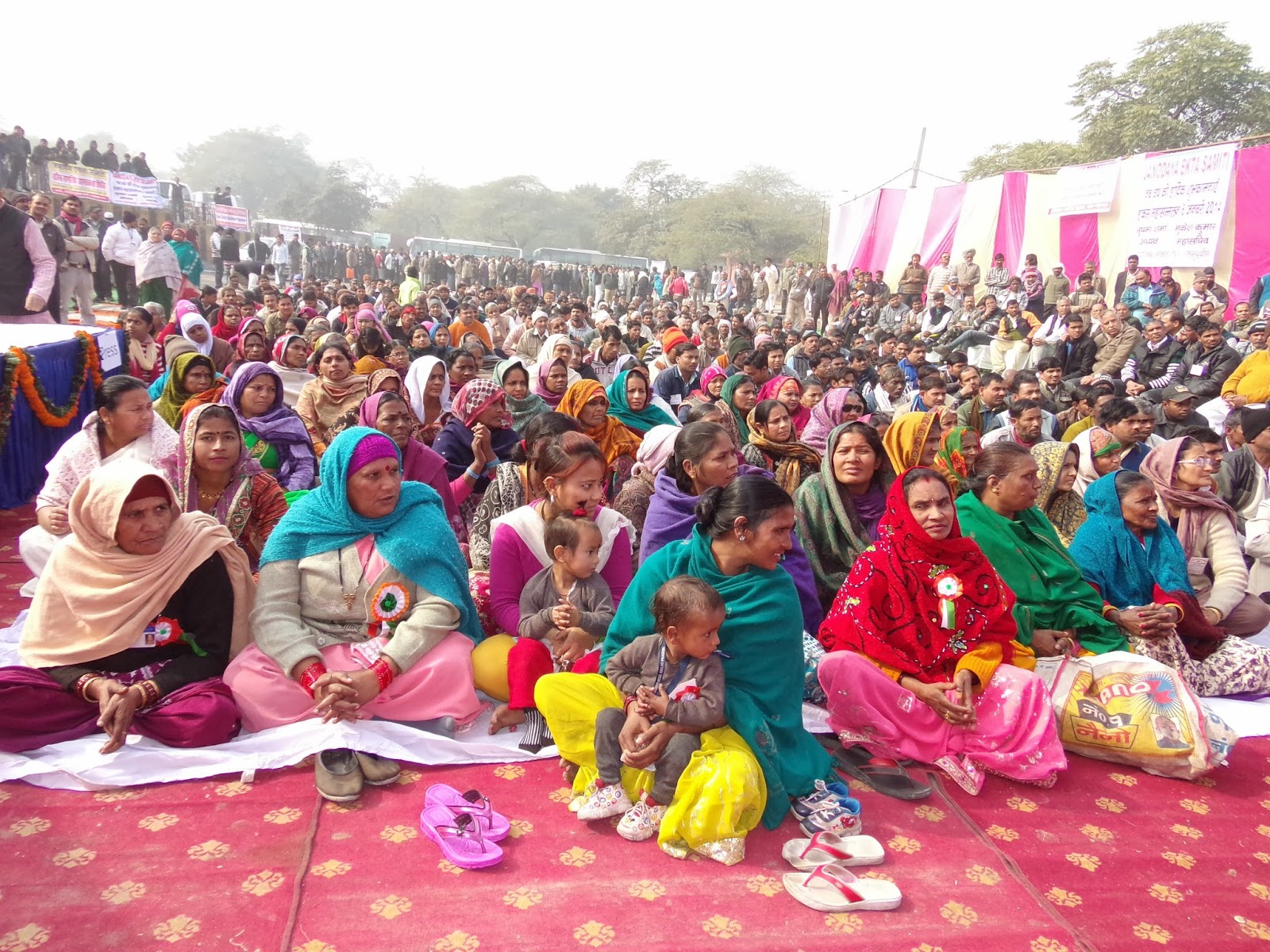
Hawkers Public Hearing
In another development, more than one thousand hawkers representatives from various street markets of Delhi participated in a hawkers public hearing organized by Hawkers Joint Action Committee on 6th January in Delhi.
In the public hearing Delhi hawkers passed resolution against FDI in multibrand retail and decided to meet newly formed Delhi Govt. to reverse the policy decision to allow FDI retailers in Delhi.

Paper on FDI in E-Commerce
Govt. of India has floated a discussion paper on FDI in e-commerce.
One can submit comment by 30th January 2014. Comments can be sent to Mr. Ishtiyaque Ahmed, Director, Department of Industrial Policy & Promotion, Ministry of Commerce & Industry, Udyog Bhawan, New Delhi and his email is ahmed.i@nic.in.

Workers Manifesto at Forum of Informal Urban Poor Workers
Forum of Informal Urban poor Workers (FIUPW) and PRIA jointly organized a workers assembly on 10th Oct at Constitution Club, Delhi. A workers manifesto was presented to all political parties keeping in view the forthcoming elections in Delhi.
Mr. Prashant Bhushan, Senior Advocate, Supreme Court of India and leader of Aam Admi Party, Mr. Dhirendra Sharma, State Secretary, CPI, Mr. Anand Sahu, leader, BJP and Mr. Anurag Saxena, Secretariat Member, CPM attended the assembly and responded to the workers manifesto. Dharmendra Kumar chaired the session.



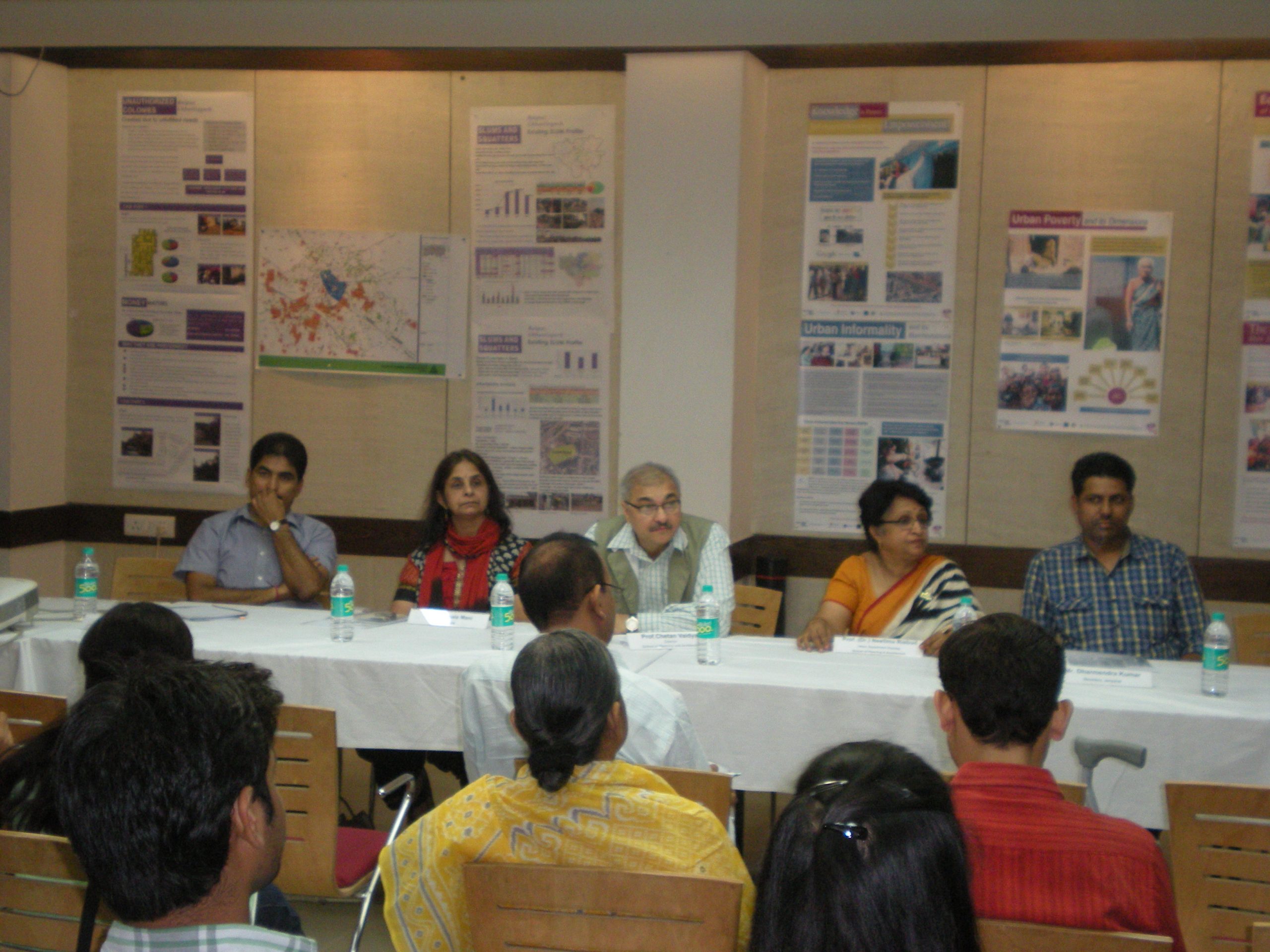
People Building Better Cities: Participation and Inclusive Urbanization
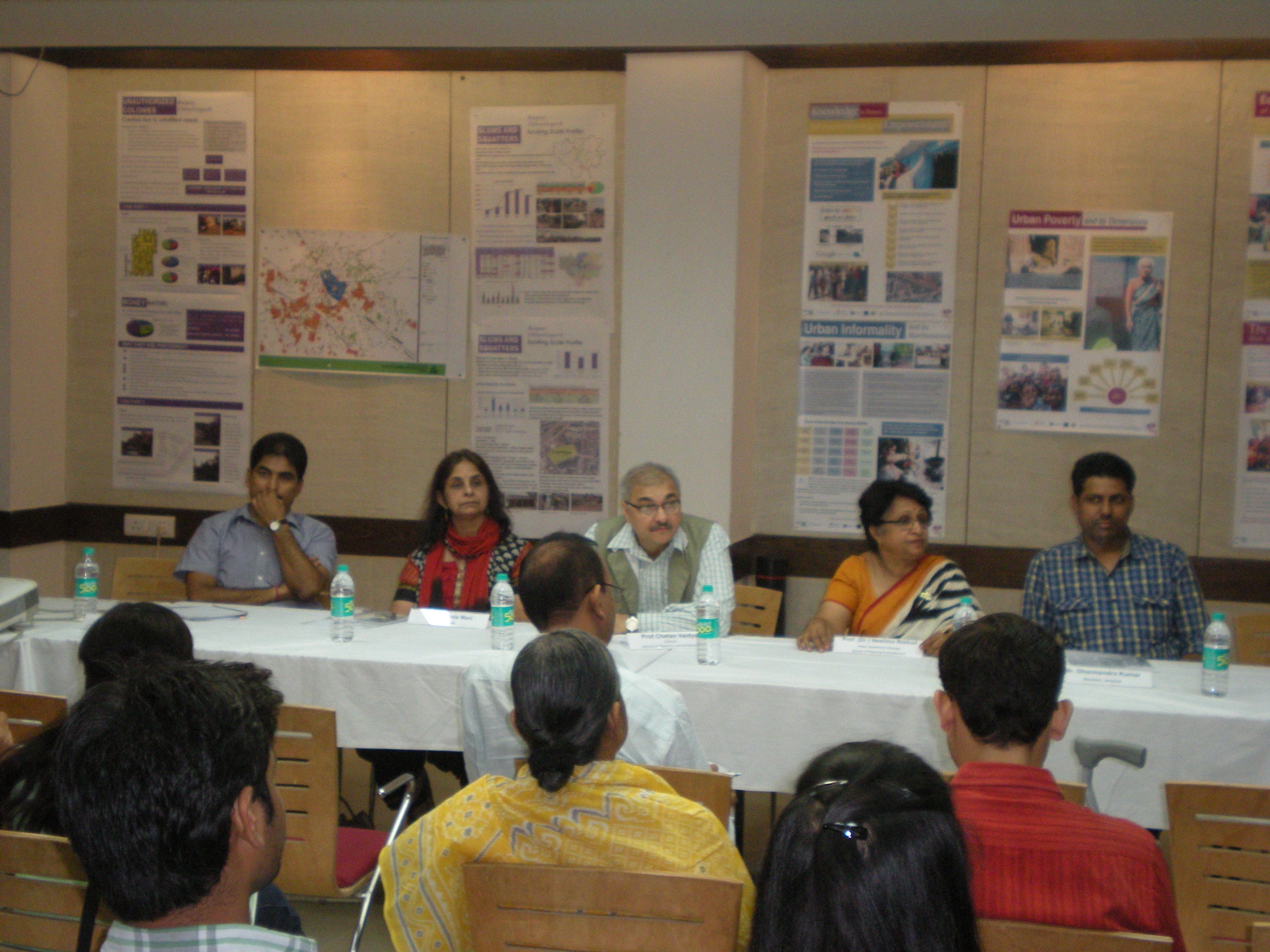
People Building Better Cities: Participation and Inclusive Urbanization – is an exhibition and exchange platform for communities, urban professionals, universities, non-governmental organizations, and policy makers on the challenges of inclusive urbanization and climate change.
In Delhi, the exhibition will be shown in English and Hindi from October 4 – 18, 2013. The English exhibition will open at School of Planning & Architecture (SPA), with a panel discussion themed “Rethinking Urban Informality: Ideas for an Inclusive City”. The Hindi exhibition will be mobile and is being hosted in six different locations across Delhi by members of the Forum of Informal Urban Poor Workers (FIUPW) with community-led local programs at each venue.
October 4, Friday: EXHIBITION OPENING in English
School of Planning & ArchitectureSPA, New Committee Room, 4-Block-B, Indraprastha Estate, New Delhi
9:30-10:00 Doors open
10:00-10:30 Exhibition opening & interactive walkthrough
10:30-11:00 Tea Break
11:00-13:00 Panel Discussion with Q&A
‘People Building Better Cities: Rethinking Urban Informality – Ideas for an Inclusive City’
13:00 onwards Lunch and exhibition displayModerator
Prof. Chetan Vaidya, Director, SPAPanelists
Prof. Neelima Risbud, Head, Housing, SPA
Prof. Jagan Shah, Director, NIUA (TBC)
Mr. Manoj Rai, Director, PRIA
Mr. Dharmendra Kumar, Secretary, Janpahal (TBC)
Ms. Isabelle-Jasmin Roth, Managing Director, Avantgarde India (TBC)
____________________________________________________________ _______
TRAVELING EXHIBITION in Hindi
The Hindi exhibition will remain open from 11:00 to 17:00 at the dates and locations provided belowOctober 7, Monday and 8, Tuesday
Janpahal Shelter for Homeless with Janpahal and India FDI WatchDirections: Nehru Enclave-Akshardham Flyover, Shakarpur. Nearest metros – Akshardham, Laxmi Nagar and Yamuna Bank
Inquiries: Mr. Dharmendra Kumar, Secretary, Janpahal & Director, India FDI Watch
dkfordignity@yahoo.co.uk , janpahal@gmail.com October 9, Wednesday and 10, Thursday
Baljeet Nagar with HAQ
Inquiries: Mr. Abdul Shakeel, Coordinator, HAQ
shakeel4peace@gmail.com, haq.delhi@gmail.com October 11, Friday and 12, Saturday
Seemapuri with All India Kabadi Mazdoor MahasanghOctober 14, Monday and 15, Tuesday
Rohini with All India Rickshaw Pullers AssociationOct 17, Thursday, and 18, Friday
B-5 Vasant Kunj with Jhuggi Jhopri Ekta Manch______________________________
______________________________ ______ ‘COMMUNITY ADDAS’
A series of themed chat sessions at each venue, with local stakeholders and community members will be held between 11:00 – 13:00, on the following dates. Refreshments will be arranged by the hosting community.October 8, Tuesday
‘Urban informality and the homeless’Chair
Mr. Dharmendra Kumar, Secretary, JanpahalKey Speakers
Dr. Amod Kumar, Chief Functionary, State appointed Mother NGO for Homeless
Ms. Ambika Pandit, Journalist, TNN (TBC)
Mr. H.S. Rawat, Co-Convener, Hawkers Joint Action Committee______________________________
______________________________ _______ EXHIBITION PARTNERS
Society for Participatory Research in Asia (PRIA)
National Institute for Urban Affairs
School of Planning & Architecture, Delhi
Janpahal
India FDI Watch
HAQ
All India Kabadi Mazdoor Mahasangh
All India Rickshaw Pullers Association
Jhuggi Jhopri Ekta Manch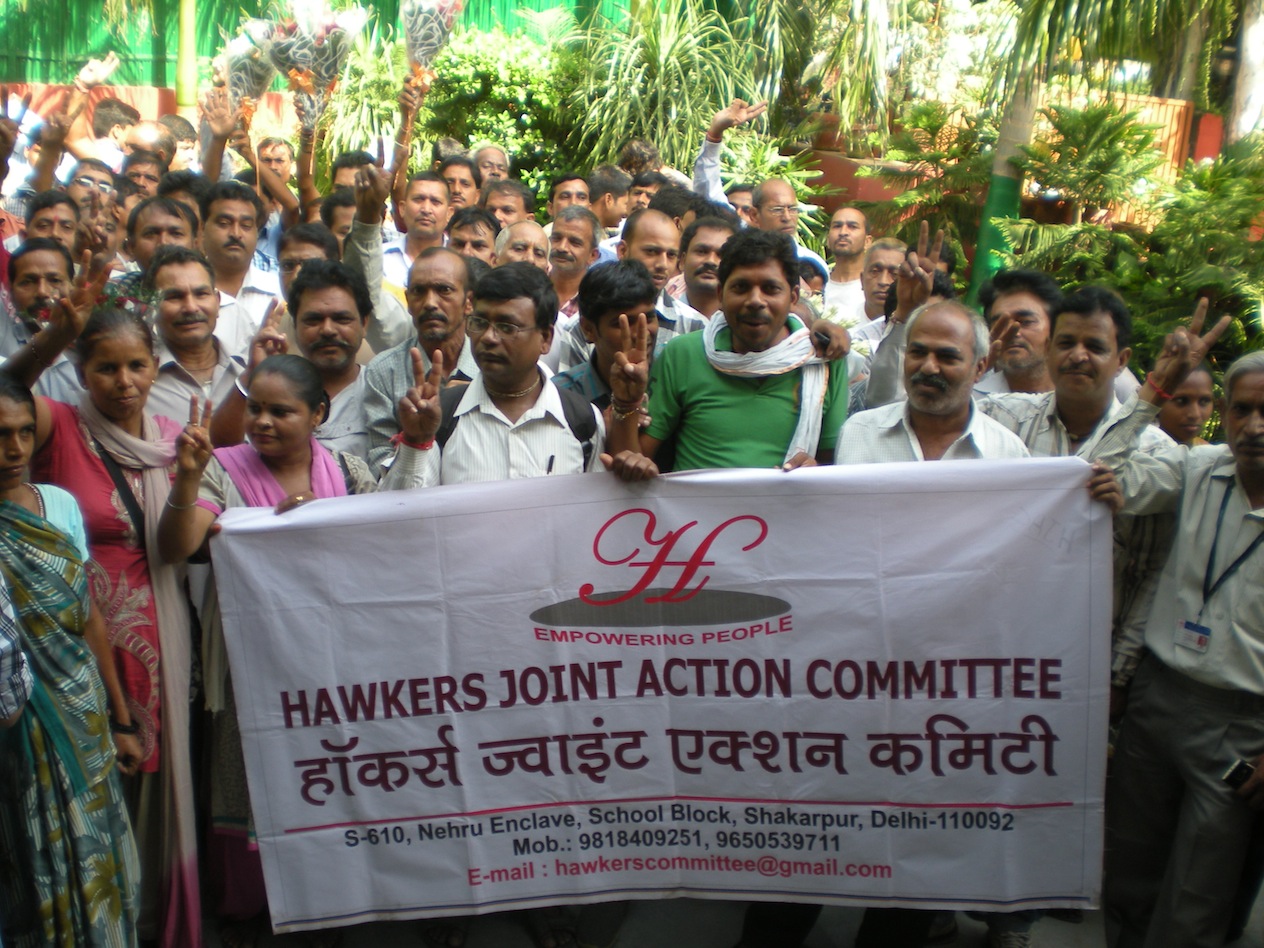
Hawkers Give Thanks
Hawkers thanking Ms. Girija Vyas, the Minister for Housing and Urban Poverty Alleviation, Govt. of India for enacting central law to regulate and protect street vendors.
 Hawkers at the Minister’s Door
Hawkers at the Minister’s Door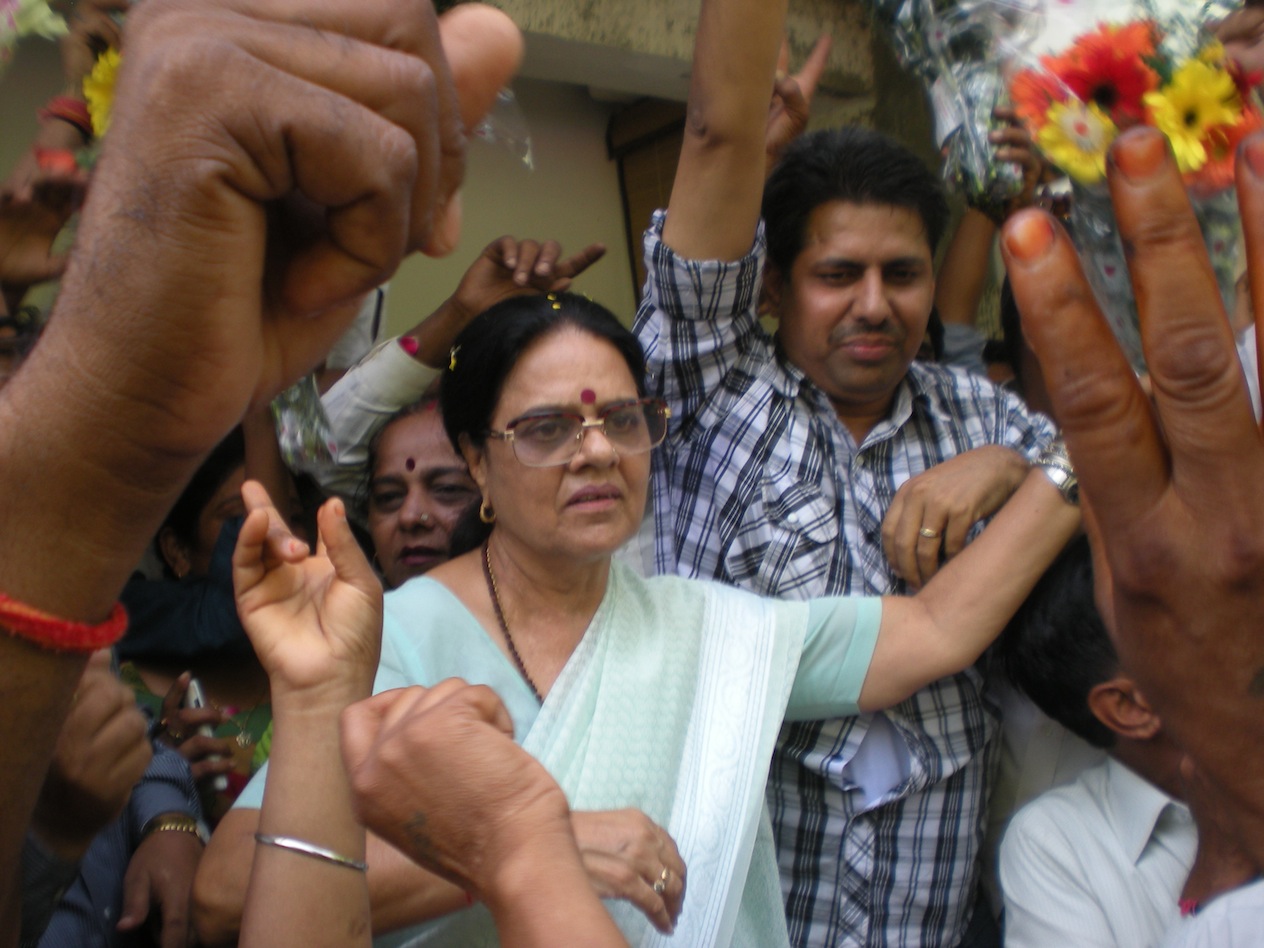 Hawkers thanking the Minister for Street Vendors
Hawkers thanking the Minister for Street Vendors

